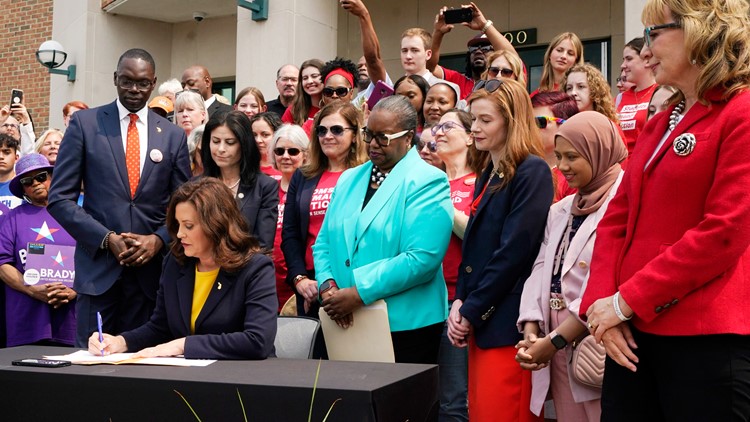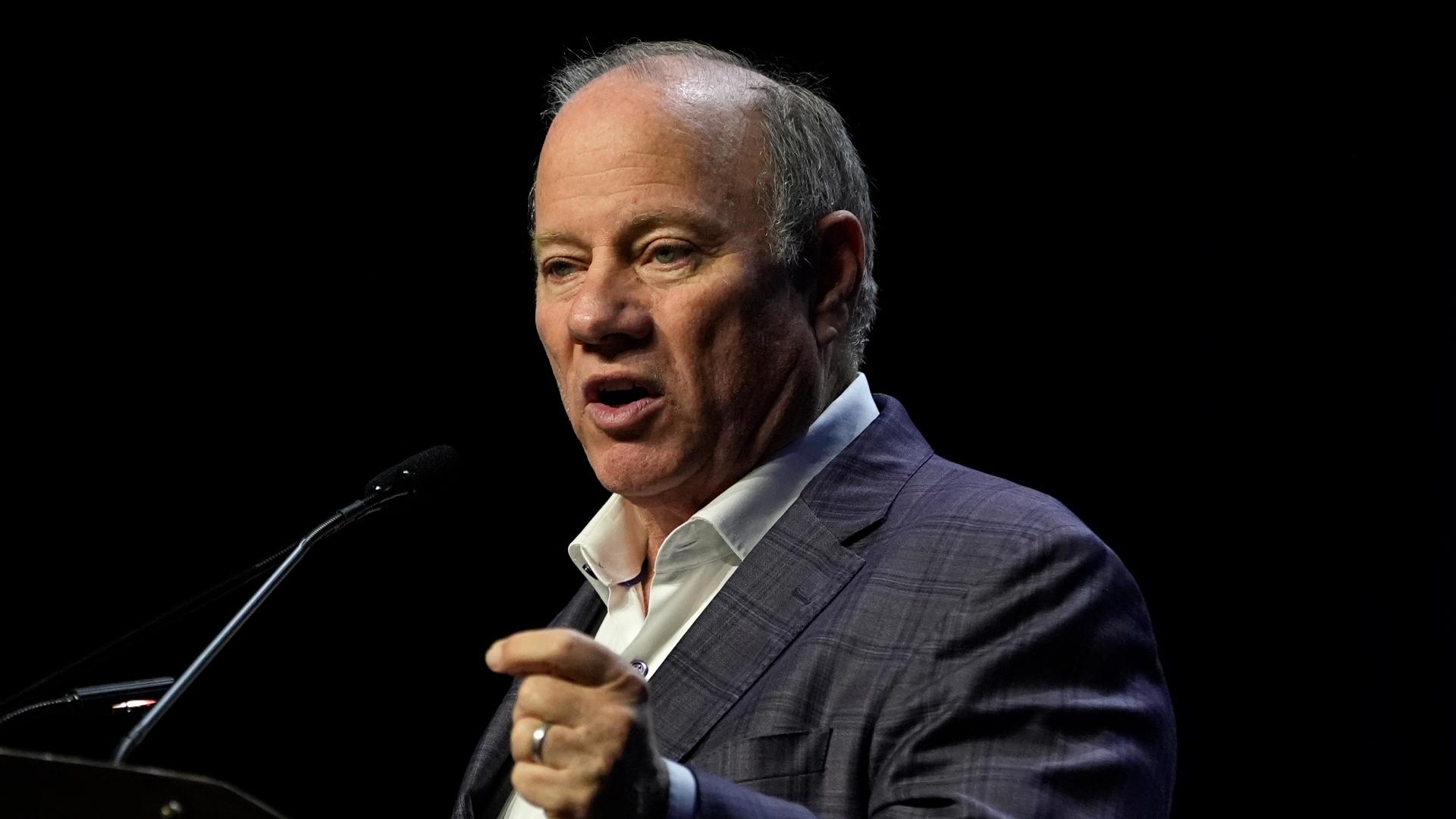ROYAL OAK, Michigan — Michigan Gov. Gretchen Whitmer gave final approval Monday afternoon to a red flag law that aims to keep firearms away from those at risk of harming themselves or others as the state grapples with ways to slow gun violence in the wake of its second mass school shooting.
Michigan joined Minnesota as the second state in under a week to implement a red flag law after Democrats in both states won control of both chambers and the governor’s office in November. New Mexico previously was the last state to pass a red flag law in 2020.
Whitmer signed the legislation just outside of Detroit, flanked by state lawmakers and individuals affected by gun violence. Former Arizona Congresswoman Gabby Giffords, who began campaigning for gun safety after she was shot in the head in 2011, was also in attendance.
“We have heard too many times from those who knew a mass shooter who had expressed concern in advance about that mass shooter's intentions,” Whitmer said Monday. “With extreme risk protection orders, we have a mechanism to step in and save lives.”
The new law, also known as extreme risk protection orders, is expected to go into effect next spring. It will allow family members, police, mental health professionals, roommates and former dating partners to petition a judge to remove firearms from those they believe pose an imminent threat to themselves or others.
The judge would have 24 hours to decide on a protection order after a request is filed. If granted, the judge would then have 14 days to set a hearing during which the flagged person would have to prove they do not pose a significant risk. A standard order would last one year.
Michigan became the 21st state to implement a red flag law. Questions remain of whether the state will have better success in enforcing it than others have. An Associated Press analysis in September found that in the 19 states with red flag laws, firearms were removed from people 15,049 times since 2020, fewer than 10 per 100,000 adult residents.
Some local sheriffs in Michigan have told The Associated Press that they won't enforce the law if they don't believe it's constitutional. Over half of the state’s counties have passed resolutions declaring themselves Second Amendment sanctuaries, opposing laws they believe infringe on gun rights.
“For those who are in law enforcement who refuse to enforce important orders, let me say this loudly and clearly: I will make certain that I find someone with jurisdiction who will enforce these orders,” Michigan Attorney General Dana Nessel said at the bill signing.
The U.S. is on a record pace for mass shootings so far this year.
Nearly half the states have passed legislation addressing guns or school safety this year, but the division among states continues to widen. Democratic-led states have enacted new laws to restrict semi-automatic weapons and expand background checks and waiting periods to buy guns. Republican-led states have backed the right to carry concealed guns without permits or for trained staff to bring guns to school.
Gun violence within schools has rocked Michigan in recent years. A total of seven students have been killed, and 12 others injured, in school shootings at Oxford High School in 2021 and Michigan State University in 2023.
Earlier this month, two school districts in Michigan banned backpacks as a results of fears of firearms being brought into schools. The ban at Grand Rapids Public Schools came after a third-grader brought a loaded gun into the school.
The red flag law is the final piece of legislation to be signed in a sweeping 11-bill gun safety package advanced by Michigan Democrats following the Feb. 13 shooting at MSU. Safe storage and universal background checks were signed into law last month by Whitmer.
Troy Forbush, who was injured after being shot at MSU on Feb. 13, was in attendance Monday and spoke with Whitmer following the signing.
Michigan Democrats, who are in control of all levels of state government for the first time in 40 years, have indicated that they plan to advance further gun safety measures.
“This represents a floor for the types of intervention that we can do," Michigan Lt. Gov. Garlin Gilchrist II told reporters Monday when asked what gun policies will follow.
►Make it easy to keep up to date with more stories like this. Download the 13 ON YOUR SIDE app now.
Have a news tip? Email news@13onyourside.com, visit our Facebook page or Twitter. Subscribe to our YouTube channel.



